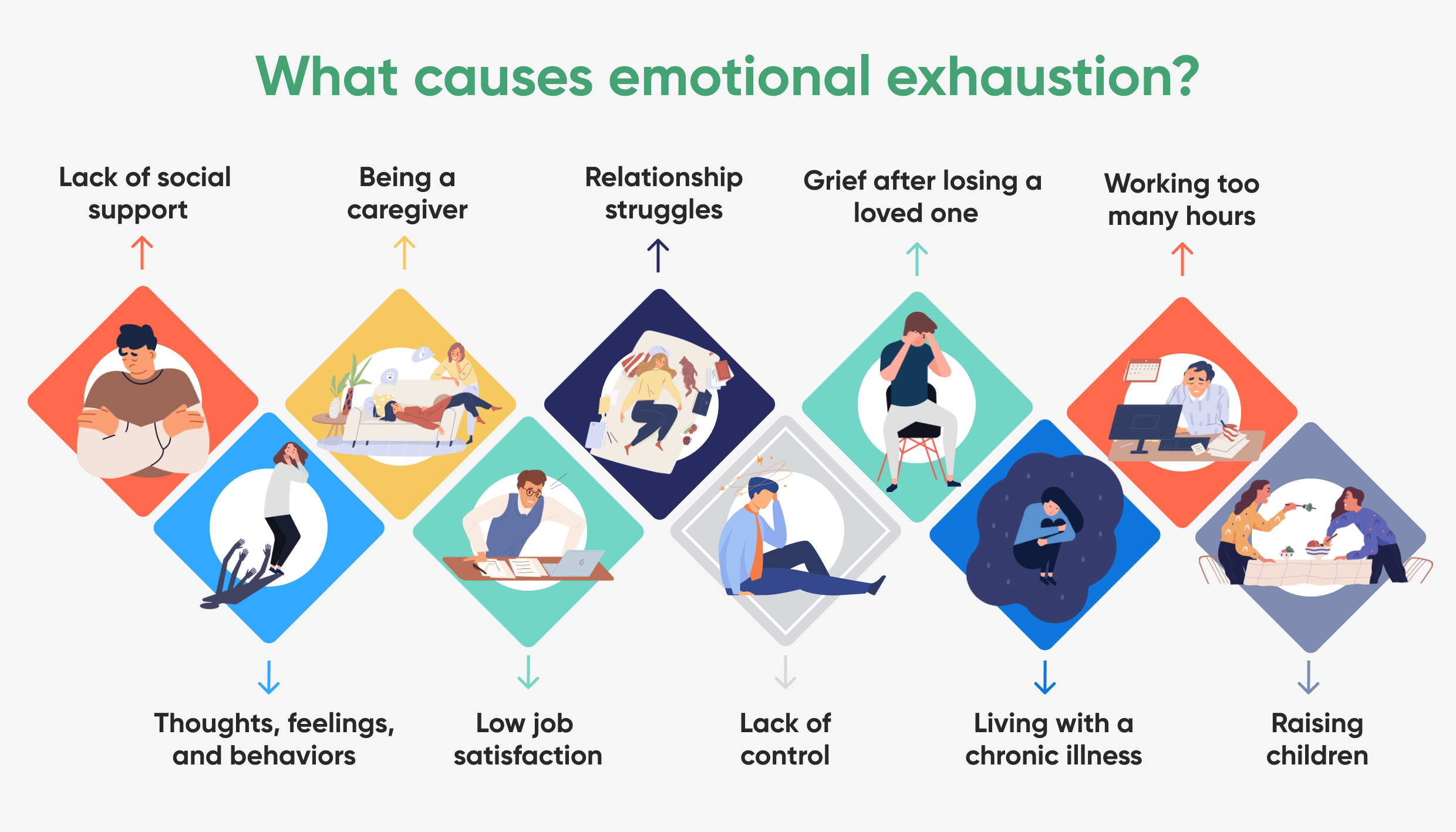MENTAL FATIGUE: SYMPTOMS, CAUSES, AND TREATMENT.
Most of us are feeling tired. Whether it’s from work, family, running after kids, or simply insomnia, we all deal with feeling tired in one way or another. For some, this sense of feeling tired can be short-lived and overcome by making simple changes, for others it can turn into long-term exhaustion and mental fatigue. Overcommitting to things, whether it’s social events or projects at work, is bad for your brain. When you have too many tasks at any one given time, you end up being pulled in different directions, which can impact productivity and cause cognitive overload.
WHAT ARE THE CAUSES OF MENTAL FATIGUE?
Mental fatigue is usually the result of long-term stress. When you’re continually dealing with things that activate your body’s stress response, your cortisol levels remain high. Eventually, this begins to interfere with normal body functions, such as digestion, sleep, and your immune system.
Professionally speaking, working more than you should – can lead to burnout — a psychological response to chronic stress. Staying late at the office once in a while is OK, but it shouldn’t be a daily habit. Perfectionism and having unrealistically high standards for yourself also contribute to mental fatigue. It puts unnecessary stress on yourself and can cause you to exert more energy than needed when carrying out tasks.

Medical causes of mental fatigue
Medical causes of fatigue may cause unrelenting exhaustion with additional symptoms. There are a number of diseases that trigger fatigue. If you find yourself experiencing long periods of fatigue, talk to the specialist to determine the root cause. The medical causes of fatigue can be classified under broad disease categories. Some of these disease categories are:
- Metabolic / endocrine: Conditions such as, anemia, diabetes, hormonal imbalances, or liver or kidney disease
- Infections: Influenza, tuberculosis, or malaria
- Cardiac (heart) and pulmonary (lungs): Congestive heart failure, chronic obstructive pulmonary disease (COPD), arrhythmias, and asthma
- Mental health: Depression and anxiety
- Sleep problems: Sleep apnea, insomnia, and restless leg syndrome
- Vitamin deficiencies: Vitamin D deficiency, vitamin B12 deficiency, or iron deficiency
- Other conditions: Cancers and rheumatic/autoimmune diseases
- Medications you are taking to treat other health conditions may also cause fatigue. This can include anti-depressants and anti-anxiety medications, sedative medication, some blood pressure medications, chemotherapy, radiation therapy, and steroids.

WHAT ARE THE SYMPTOMS OF MENTAL FATIGUE?
Difficulty concentrating, irritability, mental block, loss of interest in certain activities, and change in appetite are all symptoms of mental fatigue. Sleep problems also indicate brain fatigue. Quality sleep is a bit of a chicken-and-egg situation: if you don’t get enough sleep, you’re more likely to suffer from exhaustion, but when you’re stressed or mentally wiped, your sleep patterns tend to suffer. Your mental health can also be affected. Even though fatigue is a symptom of some underlying condition, it can still cause a combination of mental and physical symptoms, including:
- Weakness
- Lack of energy
- Constant tiredness or exhaustion
- Lack of motivation
- Difficulty with concentration
- Difficulty starting and completing tasks
- You Feel Detached
- A feeling of detachment, apathy, and indifference is a common indication that you may be mentally fatigued. Mental fatigue, or as some people like to call it, ‘burnout’, usually causes people to lose interest in things they normally enjoy doing. It may begin gradually as you begin losing interest in work, slowly progressing until nothing excites you anymore. As a result, you may begin feeling detached from reality leading to frustration and helplessness.
CHRONIC FATIGUE SYNDROME (CFS)
Fatigue is considered chronic when the feelings of exhaustion or lack of energy have lasted six or more months. is a serious, long-term illness that affects many-body systems. Another name for it is myalgic encephalomyelitis/chronic fatigue syndrome (ME/CFS). CFS can often make you unable to do your usual activities. Sometimes you may not even be able to get out of bed. Regardless of the cause, chronic fatigue will impact a person’s day-to-day functioning and quality of life. A diagnosis of chronic fatigue syndrome (CFS) is made if a person has experienced chronic and ongoing fatigue for six months or more with no known cause, that is not improved with sleep or rest and that gets worse with physical or mental activity. Symptoms of CFS can affect different parts of the body and may include unrefreshing sleep, weakness of muscles or joints, problems with memory and concentration, and headaches. Symptoms can be mild, moderate, or severe, and may come and go or last for weeks or months at a time. They can come on gradually or suddenly.
Symptoms of chronic fatigue syndrome
Symptoms of chronic fatigue syndrome can vary from person to person, and the severity of symptoms can fluctuate from day to day. Signs and symptoms may include:
- Fatigue
- Problems with memory or concentration
- Sore throat
- Headaches
- Enlarged lymph nodes in your neck or armpits
- Unexplained muscle or joint pain
- Dizziness that worsens with moving from lying down or sitting to standing
- Unrefreshing sleep
- Extreme exhaustion after physical or mental exercise
You might need professional help if your symptoms:
- Has come on suddenly and is not the result of normal short-term physical or mental stress
- Is not relieved with rest, sleep, or removal of stressors
- Has become severe or chronic
- Is accompanied by other unexplained symptoms
- Associated with weakness, fainting, or near fainting
- Is accompanied with unexplained weight loss, masses or lumps anywhere on the body, fever (greater than 101 degrees Fahrenheit), abnormal vaginal bleeding, and/or unexplained pain anywhere in the body





